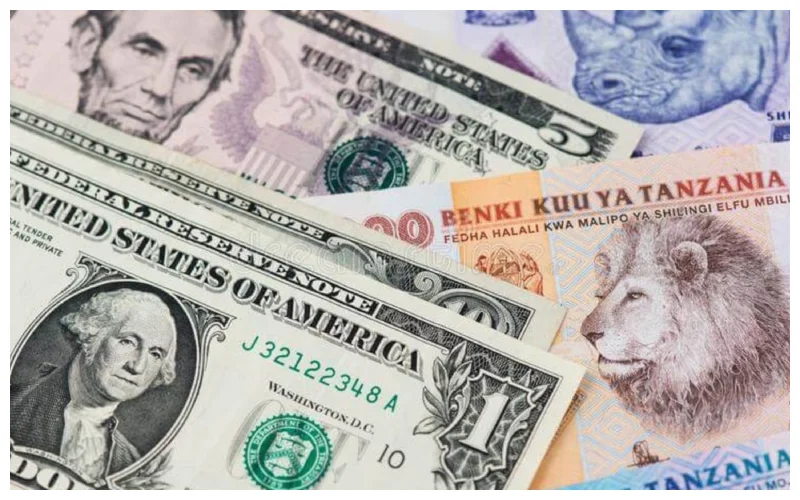Tanzania’s economy is facing potential instability due to the weakening performance of its currency, the Tanzanian shilling. Recent data from the Bank of Tanzania (BOT) indicates that the shilling has hit an all-time low against the US dollar, with an average exchange rate ofTsh2428.7 (Ksh139.77) as of August 16, 2023.
As reported by Business Insider Africa, this depreciation is anticipated to have a ripple effect on the nation’s economy, leading to increased costs for imported goods. Economists are foreseeing a chain reaction wherein the rising costs of imported goods will translate into higher expenses for businesses.
As a result, these businesses are likely to pass on the additional financial burden to consumers. Dr. Jane Buberwa, an economist based in Dar es Salaam, emphasizes that this situation is not unique to Tanzania; many countries in Sub-Saharan Africa are grappling with depreciating currencies against the US dollar, which is driving up import expenses and fostering inflationary pressures.

Dr. Buberwa explained the significance of this currency depreciation, stating that it will soon manifest in elevated prices across various sectors, including vital commodities like food, which heavily rely on imports.
Mr. Aziz Rashid, an assistant lecturer specializing in Banking and International Currency at Ardhi University, highlights the detrimental impact of such currency challenges on economies that rely heavily on imports.
Mr. Rashid advocates for government intervention to mitigate the adverse effects of currency devaluation. He suggests introducing subsidies on imported goods to soften the economic blow, while also proposing a reevaluation of the country’s current monetary policies. However, he acknowledges that the effectiveness of these measures will depend on the government’s available reserves.
Read Also: Tanzania’s Economy Flourishes Amid Global Challenges
To stabilize the currency rates, Mr. Rashid suggests the implementation of “Direct Intervention Policies,” a tactic where the central bank intervenes in the foreign exchange market by injecting substantial amounts of local currency to counteract depreciation.
Drawing inspiration from Turkey’s successful employment of this strategy, he asserts that the government’s ability to execute such actions is based on its reserve levels.
Additionally, Mr. Rashid recommends exploring agreements with major trading partners to facilitate transactions in local currencies. He cites the example of Tanzania and India transacting in Shillings and Rupees as a viable model to alleviate currency pressures.
According to the International Monetary Fund (IMF), external factors largely contribute to the currency depreciation in the region.A combination of reduced risk appetite in global markets and increased interest rates in the US has resulted in a shift of investor preferences towards safer and higher-yielding US Treasury bonds.
Subscribe to our YouTube channel Switch TV
This shift has diverted capital away from Sub-Saharan Africa, further worsening currency decline in the region.
















